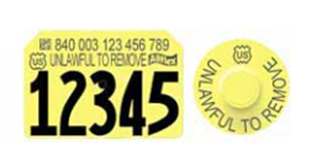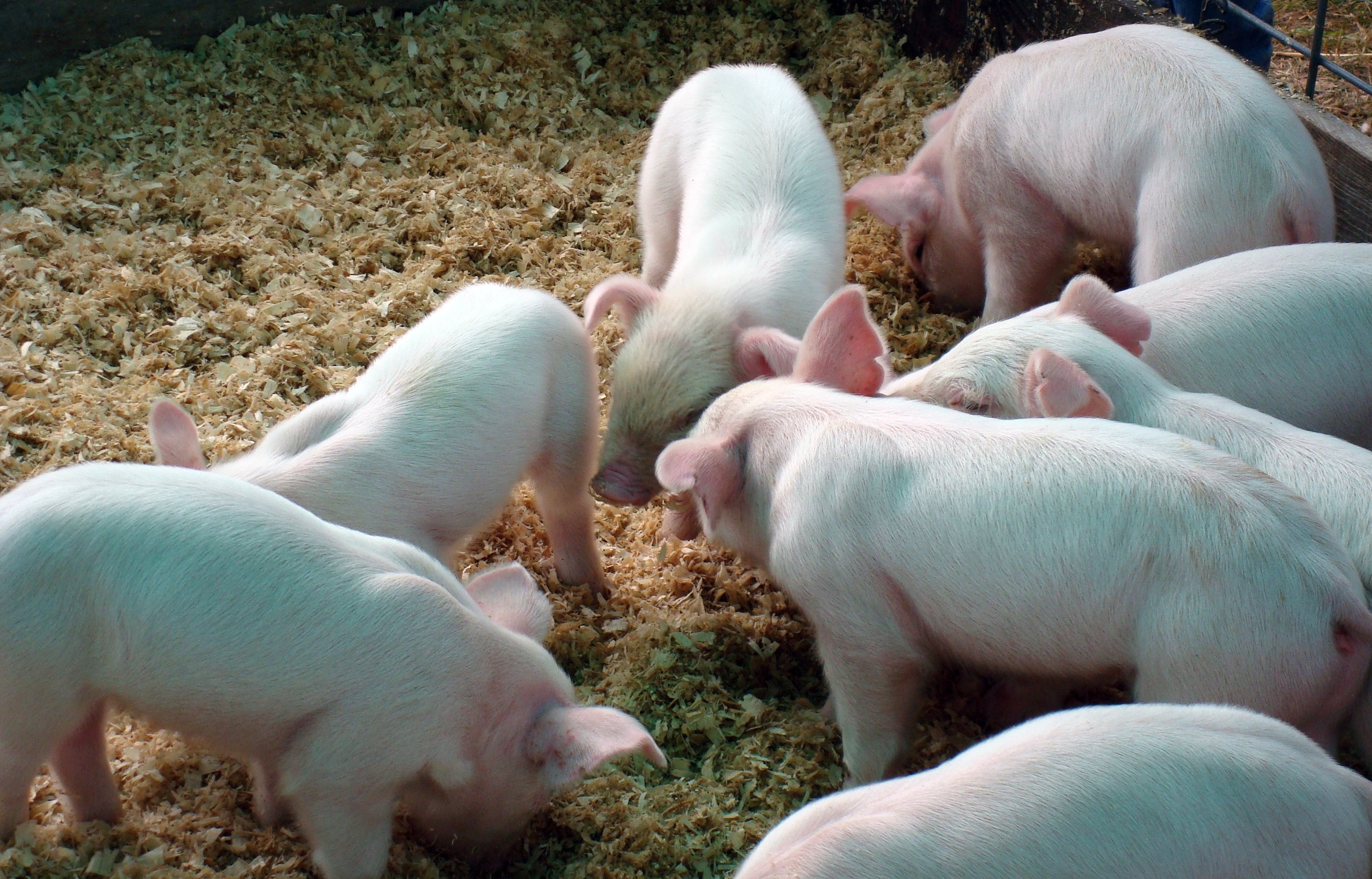What to know about official identification for exhibition swine in 2021
Breeders, exhibitors, county fairs and exhibitions need to know these changes in acquiring official identification for show pigs.

With the 2021 show season just around the corner, there are some important changes regarding swine tagging that breeders, exhibitors, county fairs and exhibitions must know. Public Act 466 (Animal Industry Act) requires pigs shown at fairs, exhibitions or shows must have official individual animal identification (ID). The requirement reflects a change in how the Michigan Department of Agriculture and Rural Development (MDARD) will manage the animal identification program.

All pigs shown in Michigan will need to have official ID in the form of a USDA 840 tag, a PIN tag with a unique animal number, or a NUES (National Uniform Eartagging System) tag, which may be from leftover inventory that was dedicated to specific county fairs. USDA 840 tags have a unique 15-digit number beginning with 840, are tamper resistant and bear the U.S. shield.
There are a number of approved distributors of USDA 840 tags in Michigan where individual 840 RFID tags can be purchased, or tags can be ordered from your company of choice. When ordering from a distributor, tags are typically sold in a minimum quantity of 25. Manufacturing and shipping times will vary depending on the distributor, and you should plan for three to four weeks to receive their tags.
A Premises Identification Number (PIN) is required to purchase USDA 840 tags or PIN tags from USDA-approved suppliers. If you would like to obtain a PIN, you will need to register your premises with the state of Michigan by calling MDARD at 1-888-565-8626. It is important to remember that PINs are assigned to a physical address, not an individual. If you move locations, your PIN will not remain the same. MDARD can also be called at the number above to obtain a PIN that has been previously assigned.
Also, even if there are multiple species on a farm, the PIN will be the same for all animals. For example, if you have cattle on your farm and obtain RFID tags, the PIN number needed to order USDA 840 tags or PIN tags for swine will be the same as what you have for your cattle.
For show pig breeders

Under Public Act 466 (Animal Industry Act), show pig breeders are not legally required to place official ID in the pigs prior to selling them for exhibition if they are born and raised in Michigan. However, selling pigs that already have official identification should be looked at as a service for customers because breeders typically have an inventory of animals that makes the bulk ordering of USDA 840 tags or PIN tags feasible versus families that may only need one or two tags.
Breeders have raised the concern that by supplying USDA 840 tags or PIN tags linked to their specific premises, they might be held responsible for situations such as drug residues associated with the market-sized animal or diseases that may be identified in a herd. First, if a drug residue is identified, it will be traced back to the person selling the pig directly to the market, not the original breeder.
Second, if a major reportable swine disease (i.e., African swine fever, classical swine fever, foot and mouth disease, etc.) is found, traceback will occur to the source herd of the infected animal. Source herd refers to the herd the pig was part of before exhibition, not the breeder’s herd. Whether an animal is purchased with the breeder’s USDA 840 tag or an exhibitor places a USDA 840 tag associated with their premises in the pig, this traceback to the source herd will occur. However, with the occurrence of typical production diseases (i.e., swine influenza), this will not require traceback to the source herd.
For participants at county fairs and exhibition events
Exhibitors of a market swine project shown at a country fair or other exhibition event are responsible for ensuring that the animal shown has the required official ID for exhibition. This means working with the breeder where you purchase your animals from to receive the animal with official ID in place or the exhibitor needs to obtain official ID tags themselves.
Official ID can be purchased for show pigs two different ways: bulk tags or individual tags.
Bulk tags
Most companies typically require a minimum of 25 official ID tags to be ordered at a time. If the exhibitor will be showing pigs for several years, it makes sense to complete this investment for 2021 and future years as these tags do not expire and can be used every year to meet the official ID requirement. There are multiple approved distributors for these types of tags, and tags can be ordered from your company of choice.
Individual tags

If purchasing a bulk order of 25 tags or more does not make economic sense, most Michigan livestock markets and some additional retailers will sell single USDA 840 EID (electronic identification) tags to exhibitors. The markets and businesses that will supply single USDA 840 EID tags can be viewed on the MDARD website.
For county fairs and exhibitions
All country fairs and exhibitions that include swine will need to follow the requirement for official ID of swine. It is not the fair’s or show’s responsibility to provide the official ID tags for the exhibitors, but they are required to validate that every pig at the event does have some type of official ID. Repeated failure to complete this validation may result in needed oversight from MDARD.

In the past, county fairs had access to plastic NUES tags through MDARD for all the swine projects that registered with their event. The fair was then responsible for completing corresponding paperwork, including maintaining a record of the exhibitor name and address that was linked to each tag.
Effective December 2020, MDARD no longer provided bulk orders of official NUES ID tags for fairs or exhibitions. Instead, the owner of the animal (exhibitor) is responsible for acquiring the official ID for the animals. This can be done by the exhibitor purchasing a pig that has already been tagged by the breeder with a USDA 840 tag or PIN tag with a unique animal number, or by placing an order for USDA 840 tags or PIN tags themselves. Exhibitors are strongly encouraged to request that the tags are placed in the pig before purchasing the animals. As stated above, currently there is no requirement for the breeder to provide official identification when selling animals.
If fairs have any remaining inventory of NUES tags, they are permitted to use them until they are gone. If a fair decides to use the tags in pigs exhibited at their event, records must continue to be kept on what tag number was provided to the exhibitor, the physical address of where the animals is kept, and destination of the pig after the fair. Tags that are currently assigned to a fair may not be transferred to another organization for use. Any unused tags can be picked up by an MDARD staff member by calling 517-284-5686.
When validating official ID tags for pigs exhibited at an event, show organizers should look for USDA 840 tags, PIN tags with a unique animal number or NUES tags (may see on swine imported from another state). All official ID tags are tamper-resistant and bear the U.S. shield. Pigs with existing official ID, such as USDA 840 tags or PIN tags with a unique animal number, should not be given an additional NUES tag. It is also important to understand that it is illegal to remove any form of official ID from an animal.
Fair officials or volunteers may also complete the tagging process for official ID if assistance is needed. Please note some tag applicators will not work for all tags. If fairs intend to supply tag applicators, they will need to make sure the equipment will work for various types of official ID or have multiple applicators on hand.
Fairs can require fair-specific tags for their swine exhibits along with the requirement for official ID. These non-official management tags are suggested for ease of readability and management of record keeping systems. Fair-specific tags may be applied by the exhibitor, parent or a responsible party.
Questions regarding official ID
If you have any questions, please feel free to reach out to Nick Babcock, MSU Extension 4-H livestock and veterinary science program educator, at 517-432-1626 or babco116@msu.edu, or Beth Ferry, MSU Extension pork educator, at 269-876-2745 or franzeli@msu.edu.



 Print
Print Email
Email


